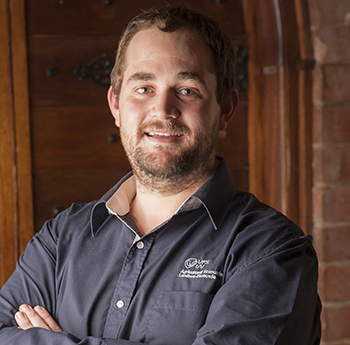Latest News Archive
Please select Category, Year, and then Month to display items
14 June 2024
|
Story Anthony Mthembu
|
Photo Suplied
 Jeremiah Hlahla, a UFS student completing his PhD in Botany at the University of Debrecen as part of an exchange initiative funded by the Erasmus+ Mobility Programme.
Jeremiah Hlahla, a UFS student completing his PhD in Botany at the University of Debrecen as part of an exchange initiative funded by the Erasmus+ Mobility Programme.
As part of an exchange initiative facilitated by the Erasmus+ Mobility Programme, Jeremiah Hlahla, a student at the University of the Free State (UFS), is nearing the completion of his PhD studies at the University of Debrecen in Hungary. Hlahla’s journey, which began in February 2024 and is set to conclude in July 2024, has been a remarkable learning opportunity. “As a first time-traveller to Europe, I have thoroughly enjoyed engaging with people from different countries and cultures,” he said.
The benefits of international collaboration
Hlahla is currently pursuing a PhD in Botany, focusing on plant stress physiology. “My current PhD project investigates the physiological, biochemical and morphological responses of vegetable-type soybean, or edamame, to combined drought and heat stress,’’ he explained. He considers the University of Debrecen the ideal institution to complete his research due to its extensive expertise and resources in similar projects. He noted that his colleagues at Debrecen conduct significant work on plant protection against biotic and abiotic stresses, including salt and drought stress, as well as proteins and amino acids in barley and other legumes.
Given the vast knowledge available on similar projects, Hlahla has found substantial engagement with his work at the University of Debrecen. “Upon arrival, I delivered an introductory lecture presenting my UFS project on the synergistic effects of combined drought and heat stress on the physiology and biochemistry of edamame. It was an engaging session as everyone could relate to my work and asked many questions,’’ he said.
Insights gained from the exchange
Hlahla has also gained valuable lessons that will assist him in his research career, including biotechnology and physiology tools. “I learned how to prepare samples and use high-performance liquid chromatography (HPLC) and reversed-phase ultra-high-performance liquid chromatography (UHPLC) to quantify proteins and amino acids,’’ he said. These techniques are beneficial not only for his current work but will also support future soybean research.
As his experience at the University of Debrecen nears its end, Hlahla reflects on the collaborations and friendships he has formed, which stand out as a significant highlight.
Dr Dirk Strydom named 2015 Free State Agriculturist of the Year
2015-11-30

Dr Dirk Strydom, head of the Department of Agricultural Economics at the University of the Free State, was chosen as the 2015 Free State Agriculturist of the Year by the Agricultural Writers Central Region.
Photo: Sonia Small |
Dr Dirk Strydom, a member of the Vice-Chancellor’s Prestige Scholars Programme (PSP) at the University of the Free State (UFS), was presented with the title of 2015 Free State Agriculturist of the Year.
Dr Strydom, head of the Department of Agricultural Economics, received the award on 23 October 2015 from the Agricultural Writers Central Region, the professional association promoting the image and standards of agricultural journalism in South Africa.
“A driven and ambitious young academic,” is how Dr Strydom is described.
According to the Agricultural Writers, Dr Strydom is blessed with the rare skill of bringing to his engagement with the agricultural community at large the same excitement and focus with which he approaches his students and his research.
“Strydom has perfected the art of disseminating complicated theory, and the intricacies of the South African Futures Exchange to the agricultural community.”
Dr Strydom epitomises the new generation of young scholars emerging from the PSP. This new breed of academic is very aware of the need to translate published scholarly discourse into practical usefulness for the broader public.
Hence Dr Strydom’s emphasis on the duty of the scholar to share vital innovation, intricate research, and its applications, not only with students but with the community at large.
The award is recognition for Dr Strydom’s work by the agricultural community.
He was also the recent recipient of an award from the Brahman breeders for his “outstanding scientific contribution” to their industry.